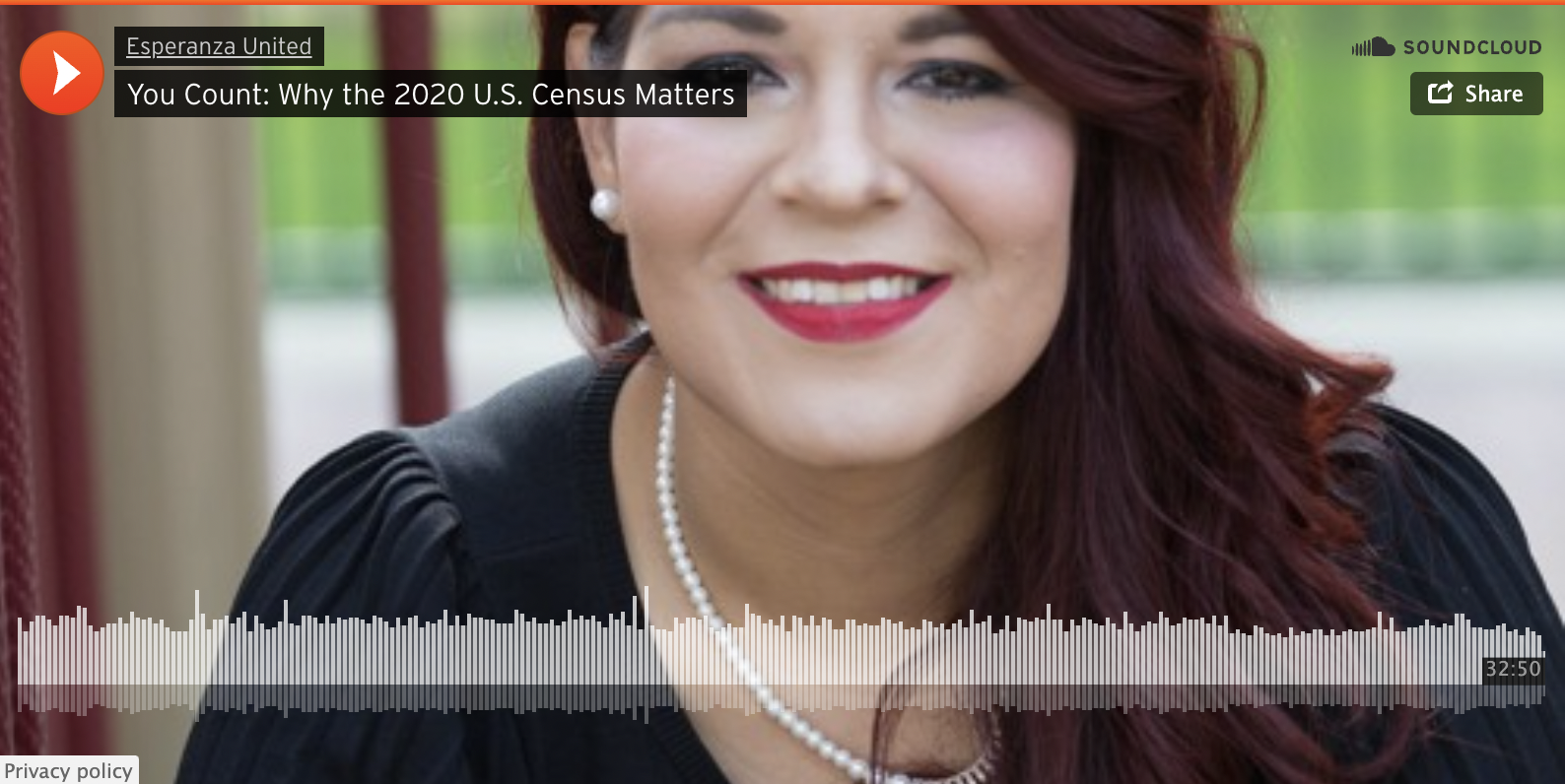Notes from the Field

Why the 2020 U.S. Census Matters – Casa de Esperanza Podcast
Oct 7, 2020
Casa de Esperanza is a member of the National Hispanic Leadership Agenda (NHLA). They work to mobilize Latin@ communities to build healthy futures and recently launched a new series titled ¡Presente! Empowering Latin@ Communities through Civic Engagement. The series will highlight actionable steps people can take to make a difference in their communities.
In this episode, Casa de Esperanza focuses on the 2020 U.S. Census. They speak to Lizette Escobedo, the Director of the National Census Program at the NALEO Educational Fund, which is also a member of the NHLA. Lizette talks about the history, structure, and impact of the Census and why it’s so important for our communities to be counted.
Here are five key takeaways from the podcast episode:
- The Census takes place every ten years and helps determine federal funding, resources, and representation for communities. The data collected is used to draw congressional and state legislative districts, and determine funding for education, healthcare, and other services for our communities for the next ten years.
- The question about Latino or Hispanic origin didn’t get added to the Census until 1970 as a direct result of various civil rights organizations coming together to fight for representation. This addition was important because it gave civil organizations the opportunity to count the Latino population in the U.S., observe it’s growth, and continue fighting for key civil rights policies using statistical data.
- It’s important to ensure that children, including babies, are counted. In the 2010 Census, about 1 million children between the ages of 0 and 4 were not counted in the Census. Of those, nearly 400,000 were Latino children.
- The Census is not just for U.S. citizens; the Census counts all people in the U.S., including undocumented folks. All data submitted to the U.S. Census Bureau is protected and there are no questions related to citizenship or immigration status.
- People can fill out the Census online, via mail, or on the phone. The online version offers the questionnaire in 59 languages, including Spanish.
There are ongoing legal challenges related to the Census, so it’s important that you fill it out as soon as possible. If you’ve already filled out the Census, reach out to your friends and family and encourage them to fill it out and be counted.
If you have any questions about the Census, call NALEO Educational Fund’s toll-free bilingual Census hotline at 877-EL-CENSO (877-352-3676).